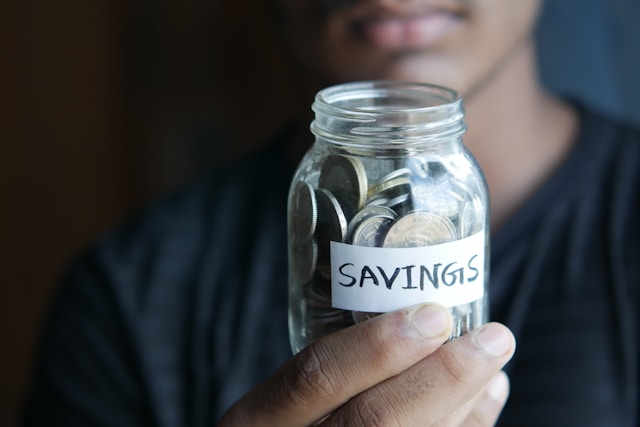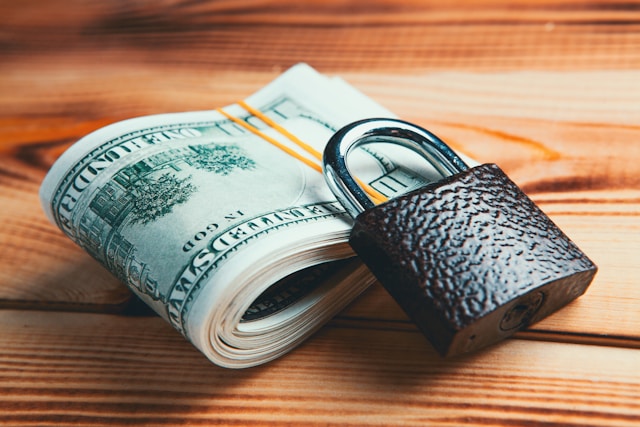Why Financial Preparedness Starts With an Emergency Fund.
In today’s unpredictable world, financial security can feel like a moving target. From sudden medical bills to unexpected job loss, emergencies can strike without warning. While insurance can help in some cases, a well-prepared emergency fund remains one of the most vital tools for true financial preparedness. It’s your personal safety net that catches you when life takes an unexpected turn.
This comprehensive guide explains everything you need to know about emergency funds — from why they matter to how to build one from scratch, even on a limited income. Whether you’re just starting your financial journey or looking to strengthen your existing safety net, this is your ultimate resource for building confidence and resilience in your money management.
What is an Emergency Fund?
An emergency fund is a stash of money set aside specifically for unexpected expenses. Unlike your general savings or investment accounts, this fund is designed to be easily accessible in case of genuine financial emergencies such as:
- Medical emergencies
- Sudden car or home repairs
- Job loss
- Urgent travel needs
- Natural disasters or other crises
The key distinction is that this money is not to be touched for everyday purchases, entertainment, or planned expenses. Its sole purpose is to protect your financial health during unforeseen events.
A well-stocked emergency fund empowers you to stay afloat without having to rely on high-interest credit cards or loans. It forms the bedrock of long-term financial prepar Why an Emergency Fund Matters for Financial Preparedness
Many people assume that as long as they earn well or have good credit, they don’t need an emergency fund. But emergencies don’t discriminate. Even high earners can be financially crippled by a single unexpected event if unprepared.
Here’s why an emergency fund is crucial:
A. Reduces Financial Stress
Knowing you have a backup gives you peace of mind. You sleep better, worry less, and avoid panic during tough times. That mental calmness is a powerful aspect of financial preparedness.
B. Prevents Debt Accumulation
Without an emergency fund, people often resort to credit cards or personal loans — and the interest piles up fast. A safety net protects you from falling into debt traps that are difficult to escape.
C. Enhances Financial Flexibility
An emergency fund gives you the flexibility to make thoughtful decisions instead of rushed, desperate ones. You can choose the right job after being laid off rather than accepting the first offer out of fear.
The bottom line? A solid emergency fund is the cornerstone of smart, strategic financial preparedness. How Much Should You Save in an Emergency Fund?
The ideal size of your emergency fund depends on your personal circumstances — including lifestyle, income, family size, and job stability.
A. General Rule of Thumb
Most financial experts recommend saving three to six months’ worth of essential living expenses. This includes rent/mortgage, utilities, groceries, transportation, insurance, and minimum loan payments.
For example, if your monthly expenses total $2,000, aim for $6,000–$12,000 in your emergency fund.
B. Tailoring the Fund to Your Life
- Single with stable income: 3 months may suffice.
- Family with kids or unstable income: Aim for 6–9 months.
- Gig workers or freelancers: Save more, ideally up to 12 months.
Remember, your emergency fund is about essential costs — not luxuries. You’re covering survival, not comfort.
Where to Keep Your Emergency Fund
Your emergency fund should be accessible, secure, and separate from your daily spending accounts. You want quick access when needed, but not so much that you’re tempted to dip into it casually.
Best Options Include:
1. High-Yield Savings Accounts
These offer safety, easy access, and better interest than standard savings accounts. Look for FDIC-insured banks with no monthly fees.
2. Money Market Accounts
Similar to high-yield savings, but with slightly higher interest and limited check-writing abilities.
3. Cash (Partially)
Keeping a small portion (e.g., $200–$500) as physical cash at home can help in extreme emergencies like bank outages or natural disasters.
Avoid placing your emergency fund in stocks or long-term investments — these fluctuate and may not be liquid when you need cash urgently.
Building an Emergency Fund From Scratch

Starting from zero? That’s okay. Most people do. What matters is consistency, not size — your emergency fund grows over time.
Step-by-Step Plan:
Step 1: Set a Mini Goal First
Begin with $500 or $1,000. This small victory boosts confidence and gets you through minor emergencies.
Step 2: Create a Budget
Track your income and expenses to identify savings opportunities. Even cutting back $5/day adds up.
Step 3: Automate Savings
Set up auto-transfers to your emergency account on payday. Automating takes the thinking out of saving.
Step 4: Use Windfalls Wisely
Tax refunds, bonuses, or cash gifts? Allocate a portion — or all — to your emergency fund before spending.
Step 5: Sell Unused Items
Decluttering can be profitable. Sell items you no longer use and deposit the proceeds into your fund.
Common Mistakes to Avoid
Building an emergency fund is powerful — but easy to sabotage if you’re not careful.
A. Using It for Non-Emergencies
Avoid tapping into your fund for sales, vacations, or gifts. Label it mentally and physically as “emergency only.”
B. Keeping It in a Checking Account
This makes the money too accessible and vulnerable to impulse spending. Use a separate account.
C. Not Replenishing After Use
If you dip into your fund, make rebuilding it a priority. Treat it like repaying a loan — to yourself.
Staying disciplined protects your financial preparedness and ensures your safety net is always ready.
Integrating Emergency Funds Into Your Financial Plan
An emergency fund isn’t just a standalone account — it’s a pillar of your broader financial preparedness strategy.
Coordinate With:
- Insurance: Ensure health, auto, and renter/home insurance complement your emergency savings.
- Debt Repayment: Balance between paying off debt and saving.
- Investing: Build your emergency fund before diving into risk-based investments.
Think of your financial plan like a house: the emergency fund is the foundation. Without it, everything else is at risk.
Emergency Funds for Different Life Stages
Financial preparedness evolves as your life changes. Your emergency fund should, too.
A. Students and Young Adults
Start small — even $25/month helps. Prioritize creating financial habits early.
B. Families With Children
Budget for kid-related emergencies: healthcare, education, or job gaps.
C. Midlife Professionals
Focus on higher savings goals to cover mortgage, healthcare, and family emergencies.
D. Seniors and Retirees
Maintain a modest fund even in retirement to avoid drawing from investments during downturns.
Each phase has different risks — plan accordingly.
How to Stay Motivated
Saving for emergencies isn’t glamorous. It doesn’t feel rewarding — until it’s desperately needed. Staying motivated takes intention.
Tips:
- Celebrate milestones (e.g., hitting $1,000, then $5,000).
- Visualize real-life scenarios: what if you lost your job tomorrow?
- Track your progress monthly.
- Join communities or apps that support financial preparedness.
Motivation often comes from meaning — remember the peace, protection, and power an emergency fund gives you.
Frequently Asked Questions (FAQs)
Q1: Should I pay off debt or build an emergency fund first?
A: Build a small fund ($500–$1,000), then focus on debt. Once high-interest debt is under control, expand your emergency fund.
Q2: Can I invest my emergency fund?
A: No. The risk and lack of liquidity make investments unsuitable for emergencies.
Q3: What counts as an emergency?
A: Unexpected, urgent, and necessary expenses — not planned vacations or sales.
Q4: What if my income is inconsistent?
A: Save aggressively when you can. Use a rolling average of expenses to determine your fund size.
Q5: How do I protect my fund from inflation?
A: Use high-yield savings or money market accounts. The goal is liquidity and safety — not growth.
Final Thoughts: Your Emergency Fund is Your Financial Armor
Creating an emergency fund is the most important and practical step in achieving long-term financial preparedness. It shields you from debt, anxiety, and rushed decisions. It gives you breathing room to make the right moves when life gets hard.
Start small if you must — but start. Over time, your emergency fund will become more than just money in an account. It will be a symbol of your discipline, foresight, and commitment to a secure financial future.

